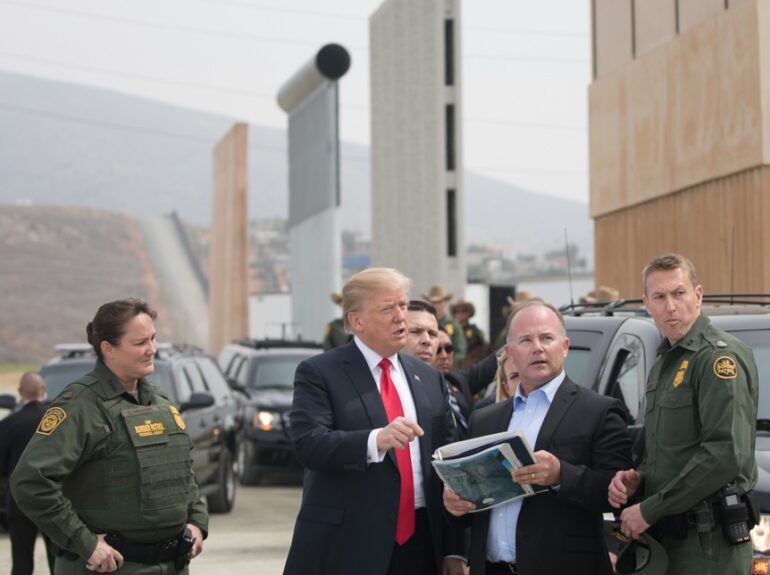The Trump administration has reportedly now compelled Mexico to restore compliance with a U.S.-Mexico aviation deal that had been repeatedly violated during the Biden years, according to an internal memo obtained by the Daily Caller News Foundation.
The breakthrough followed a slate of retaliatory measures imposed by President Donald Trump’s Department of Transportation (DOT).
In response, Mexican officials “took immediate action” to honor the terms of the U.S.-Mexico Air Transport Agreement, the memo states — a turnaround that underscores Trump’s willingness to exert pressure on foreign governments to secure American interests.
“We commend President Trump and the Department of Transportation for bringing [Mexico] into compliance with the U.S.-Mexico Air Transport Agreement in a way the Biden administration could not,” the memo reads.
The document credits the administration’s hard line for forcing Mexico to return airport slots withdrawn from U.S. carriers in 2022 and to increase transparency in how those slots are allocated at Mexico City’s congested airport. “These developments are a testament to the strength and negotiating prowess of the Trump administration and DOT Secretary Sean Duffy,” the memo continues.
The dispute dates back nearly a decade. Signed in December 2015 at the close of the Obama administration and implemented the following year, the Air Transport Agreement was intended to “significantly increase” trade and travel between the United States and Mexico.
It eliminated many government restrictions, opened routes between any cities in the two countries, and expanded cargo freedoms.
But over time, Mexican officials rolled back on the deal’s promises, taking steps that limited competition and, according to Trump administration officials, unfairly advantaged Mexican carriers.
By 2022, U.S. airlines had lost key slots in Mexico City, and American cargo carriers were forced to relocate. The following year, Mexico went further, issuing a decree to push all dedicated cargo operations out of Mexico City International Airport and into Felipe Angeles International Airport — a move that disrupted supply chains.
The Trump administration responded with force. In July, Secretary Duffy announced a set of retaliatory measures: Mexican airlines would be required to file schedules for all U.S. operations, seek prior approval for cargo and charter flights, and face heightened oversight from Washington.
“Joe Biden and Pete Buttigieg deliberately allowed Mexico to break our bilateral aviation agreement,” Duffy declared when unveiling the penalties. “That ends today. Let these actions serve as a warning to any country who thinks it can take advantage of the U.S., our carriers, and our market.”
The pressure campaign quickly yielded results. According to the memo, Mexico has returned withdrawn slots to U.S. airlines, pledged to adopt global scheduling standards, and expressed willingness to address additional concerns about cargo operations.
The air transport breakthrough follows Trump’s broader posture toward Mexico. Upon returning to the White House, Trump compelled President Claudia Sheinbaum to deploy 10,000 National Guard soldiers to the southern border, curbing drug and migrant flows in exchange for a pause on Trump’s proposed 25 percent tariff on Mexican imports.
For Trump, the episode highlights a recurring theme: that American leverage, when exercised firmly, can bend foreign governments back into line — a contrast, his allies say, with the Biden administration’s more passive approach.
[READ MORE: Judge Blocks Trump’s Attempt to Remove Fed Governor Lisa Cook]



